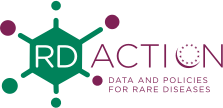Orphanet, the European database for Rare Diseases
DESCRIPTION
The main objective of this WP is to make the Orphanet database of rare diseases evolve to a European, sustainable model. During this Joint Action, Orphanet will evolve into a new model : new IT infrastructure, from a relational database to a more fexible knowledge base, in order to be able to share the IT development effort with the consortium partners in the future; new organization model evolving to a more decentralized and open one, by transferring progressively core activities to participating countries and by developing a community-driven edition-process of the database involving expert groups and individual experts, patient representatives and users at large, and increasing transparency and traceability. Thanks to these evolutions, the sustainability plan built in WP3 will be facilitated by increasing the database ownership by consortium partners.
GOALS
1. Coordinate the activities of the Orphanet consortium (26 beneficiaries in this Joint action and 15 collaborating stakeholders)
2. Maintain, update and expand the rare diseases database: the inventory and classification of RD and its alignments with other terminologies (i.e. ICD10, SNOMED CT); links between rare diseases, phenotypes and genes, including cross-references with other resources (i.e. OMIM, HPO); the professional encyclopedia of RD by providing a definition for all RD to be included in the content model of ICD11 and SNOMED CT, as well as in the Orphanet Rare Diseases Ontology (ORDO) and by producing new and updated abstracts and disseminating new content produced by others.
3. Develop the necessary tools to track changes of the Orpha nomenclature, classifications and scientific database content, including an interactive platform allowing for managing input from the community.
4. Provide a directory of expert services in every MS, including centres of expertise, clinical laboratories, patient registries, mutation databases, biobanks, research infrastructures, patient organisations, European reference networks when set up.
5. Provide overarching database data management, quality control and IT support, including training MS teams.
6. Produce reports (Orphanet Report Series) intended to provide compiled pieces of information required for supporting CEGRD activities.
